Executive Summary
The report focuses on analysing the application and importance of operations management principles at Total Energies. A brief overview of Total Energies has been identified, as well as analysing of some of the challenges facing its operations. However, the competitiveness of the company in its operation management has led to the gaining of a large market share in the global market. Strategies used by the company’s operational goal in by 2030 have been evaluated using the three principles of management, which comprise leadership, quality management and improvement of people. Business and operation strategies are identified to help in evaluating the specific goals of total energies company limited. The study further analyses the KPIs, such as economic/ financial measures, supply chain performance, and the management of revenues and expenses. The report also presents some technologies that help boost operation management, such as block, artificial intelligence, and big data technology. The company should adopt the methodologies and scheduling tools like the Gantt chart and WBS in accomplishing its project plan. Lastly, the role of leadership in project management, such as guiding stakeholders, is covered to serve as a recommendation on how the company can initiate change in its operation.
Introduction
The concept of operations management involves designing and controlling production procedures in an organisation. In a business setup, it is associated with converting energy, labour, and raw materials (inputs) into outputs capable of satisfying the needs of the consumers. The company needs to embrace different operations management principles as they help align the business activities, starting from the manufacturing of goods, packaging, and distribution. Business operations which are involved in the production of goods and services are usually optimised through the concepts of operations management. Some of the techniques applied to ensure a reliable operating system comprise planning, supervising, and organisation of various aspects of production with the key objective of optimising the resources.
The world is going global, with companies adopting and integrating technologies with production management. Therefore, an organisation needs to embrace the integration of technology and other key aspects of production in their statement to fulfil the customers’ needs by producing good and excellent final products. In this report, the researcher will focus on applying different concepts and principles of operation management to Total Energies company limited, which specialises in energy production. The key operations involved by the company comprised sourcing the raw materials, producing, storing, refining, and distributing different petroleum products. The research will therefore focus on evaluating different techniques used by Total Energies to produce, store and supply its oil products. This will further involve identifying the overview of the company, evaluating its competitiveness, and identifying the operation strategies and technologies which help boost the company’s productivity.
Overview of Total Energies Company Limited
Total Energies is a French multinational company which is involved in the production of energy and petroleum products. It was founded in 1924 and it makes up to be among the best oil manufacturing companies in the world (Alsuwailem and Williams-Rioux, 2022 a). The simple operations of the company involve the extraction of crude oil and natural gas exploration and production to power generation, transportation, refining, marketing of the final petroleum product, and finally, trading of the produced commodities to the international market (Alsuwailem & Williams-Rioux, 2022b). The head office of the company is in Paris, France, with 903 subsidiaries worldwide, such as in the United Arab Emirates (Abu Dhabi Gas Liquefaction Company), Switzerland, the united states, Angola, Netherlands, Germany and Brass holdings company limited in Luxembourg. Some of the company’s major business segments comprise exploration and production, gas, renewable and power, refining and chemicals, trading and shipping, marketing and services, and Total global services.
Theories, Concepts and Principles of Production Management at Total Energies
The major theories which can be used by Total Energies company comprise six sigma and lean management. Six sigma theory helps reduce errors and defaults associated with operations management (Benjaafar and Hu, 2019). The theory will help Total to define the project, measure the requirements of the new change, analyse any issue with the operations, improve on the current measure, and establish a control plan for managing the business operation.
Lean manufacturing theory is effectively applied at Total Energies to satisfy customer needs by enhancing an effective operation management system. The value of the products produced by the company is enhanced through the effective application of the lean theory (Benjaafar and Hu, 2019). The company identifies the value of the oil produced, measures a value stream, creates a flow, and initiates continuous improvement to provide quality products.
The key operation management principle applied by Total Energies is leadership. The company plans to reposition so that the international market and exports can be handled effectively. The company’s vision to excel in the international market should be set in the leaders’ minds for the efficiency of operation management (Ivanov et al., 2020). Leaders are responsible for guiding others on how to execute projects, deal with challenges, and spearhead communication within the organisation. Good leadership will help Total Energies achieve the customers’ desired results.
Impact of Productivity Workflow and Quality on Organisation’s Competitiveness
Total Energies is one of the leading energy producers in France and the global world hence being referred to as the primary catalyst for the economic growth and stability of the country. The diversification of the company’s operation in different countries also contributes to the sustainability of global trade (JPT staff, 2021). The company has been able to manage completion by being selected as one of the government’s reservation companies in France. with this, other companies from the global market cannot beet the company in the provision or the products to the market since the government backs it.
The company has employed technology which helps in the production of unique and differentiated products. The oil and products produced b total energies are also o good quality, contributing to its competitiveness in the global market (Stoyanova and Angelova, 2018). The company has also transformed their subsidiaries by empowering them with technologies that mainly focus on the quality production and satisfaction of the customer’s needs. The company’s strategic views on workflow processes have also contributed to the increased competitiveness of the company.
Total Energies strategically partnered with workflow science which involved the use of automated expertise in the production. Through automation, the company was able to attain the optimum goal of production by being able to satisfy customers by availing quality products on the market (Stoyanova and Angelova, 2018). Therefore, workflow science is associated with the company’s strategic growth and attainment of competitive advantage in the tarnation market. Productivity, workflow, and quality have a positive set of impact on the competitors in the market. All the employees are respectful, responsible, efficient, and collaborative with the new automated technologies contributing to the growth and production of the company. The production workflow contributing t quality products for competitiveness is as presented in figure 1 below.
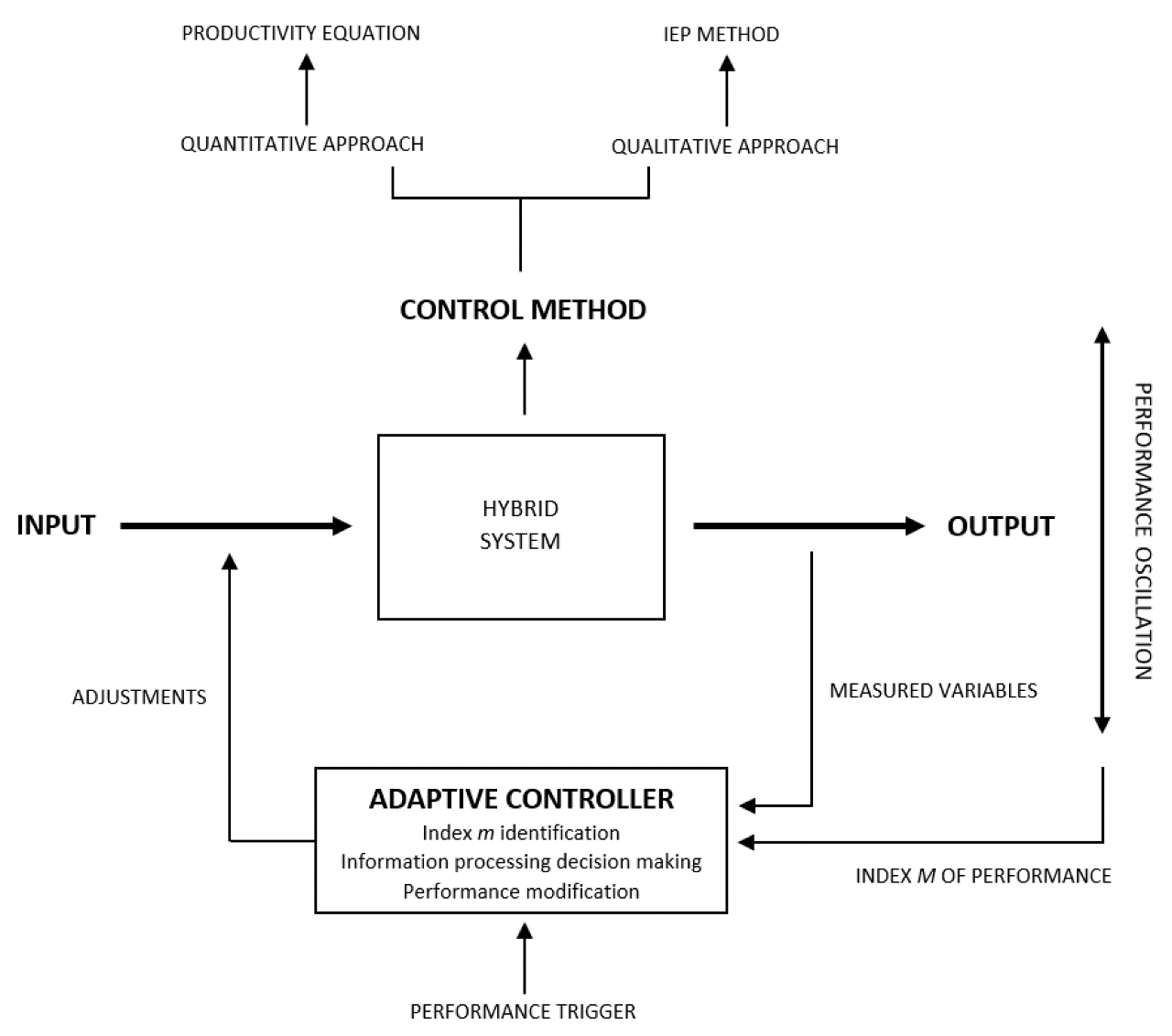
Core Operational Strategies with Overall Business Strategies
The business strategies are established to enhance the growth of Total Energies company limited. Effective business plans and strategies help the company attain the leading position in the global market. Business expansion and an increased number of subsidiaries liked the company’s growth strategies (Choi et al., 2018). The company has expanded its business, opening subsidiaries in different countries. Through geographic expansion, the company has enriched its optimum production process. Therefore, business expansion through diversification and opening subsidiaries has helped the company attain the key operation goal. It is the objective of operations management to distribute the final products to different parts of the world. Therefore, having subsidiaries and stores in different parts of the world helps Total Energies in enriching its operation strategies of distribution and supply.
Another business strategy Total Energies adopted is using a multi-energy technique in light of the developments in the oil, gas, and electricity markets. Through product diversity in terms of gas, electricity and oil portfolios, the company has been able to project low costs on gas assets by less than $20/b. The strong strategy in liquefied gas has also positioned the company to be among the top in the global market. The acceleration in electricity production has also contributed to the world’s efforts in using renewable energies from petroleum products. Therefore, the company’s focus on diversification is in collaboration with the core operations strategies.
The first operation strategy is market penetration which involves the aspect of Total Energies being able to serve a wide range of customers. The company has been able to obtain this through business strategy in diversification and opening of multinational subsidiaries in the countries like the United Arabs Emirates, Angola, and Germany (Reid and Sanders, 2019). The second core operation strategy for Total energies is Product Strategy which involves the production of compelling products and services that satisfies the customers. Total Energies has advanced in producing liquefied gas, electricity and oil that are of excellent quality on the market. Lastly, the supply chain strategy has been reached by the customers being able to reach customers in different countries via their subsidiaries. Furthermore, the company has been transforming its technology to improve communication. Effective combination of the operation and corporate strategy enhance enrichment of corporate goals as presented in the figure 2 below.
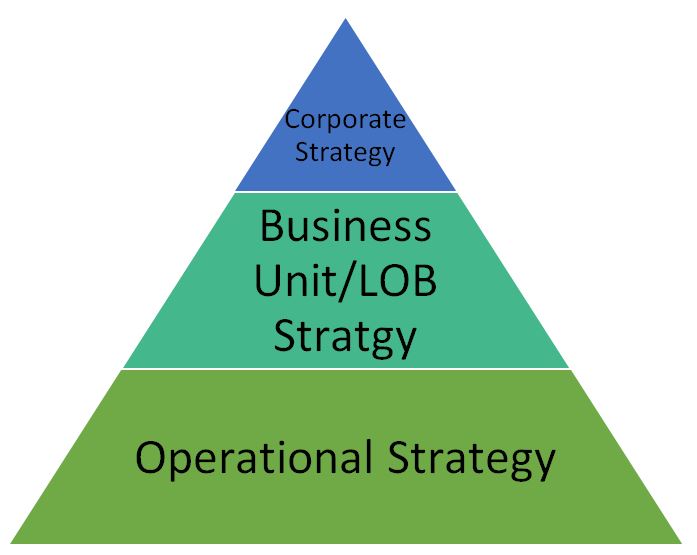
Critical Role of Supply Chain in Aligning Operational Strategy to Business Strategy
One needs to understand the connection between an organisation’s business strategy and the supply chain strategy. The business strategy leverages the company’s core competencies to achieve long-term objectives. It mainly involves the decision-making process taken by the company to improve its products and services (Batista et al., 2018). The supply chain strategies constitute the techniques used to identify the suppliers, business partners, suppliers, distributors, and potential customers for the company. Therefore, effective integration of the business and supply chain strategies constitutes the company’s growth.
The supply chain of Total Energies is creating a link between operation and business strategies. The company’s logistics and services are known for its world-class shipping and onshore/ offshore operations. Total Energies company limited has been one of the best companies in international shipment and has recorded excellent results (Ishfaq et al., 2021). Effective implementation of supply chain strategies has helped the company ship hydrocarbon products from France to the rest of the world. It is evident that the distribution of energy in France and the rest of the world greatly depends on the company’s operations regarding supply chain strategies.
Excellent logistic services provided by the company have made France famous worldwide for being the best energy providers hen contributing to the nation’s economic growth. Total Energies is also turning towards the process of blockchain to streamline the process of its supply chain. Blockchain distribution is one of the current trends and emerging technologies in the petroleum and energy industry (Ishfaq et al., 2021). Various data on energy provided by the technology to the company comprise the market process, marginal costs, energy law compliance, and fuel prices in the global market. Such information helps the company formulate supply chain strategies that align its goals and business and operations objectives.
The supply chain techniques adopted by the company help the company in attaining business and operational strategies. Blockchain technology has greatly contributed to the growth of the company’s operations and penetration into a global market. Total Energies could easily scan the nature of the market, the demand for oil products, and the fuel prices in other countries before opening the subsidiaries. The supply chain strategies have also helped the company supply the best and unique products that satisfy the customers’ demands with respect to intensive research and studies on the market, suppliers, and possible shipment services for the company.
Blockchain technologies have also contributed to saving time when producing products, distribution, and decision-making processes within the company. The technology minimises the amount of time spent searching for distribution channels which can be used to get to the customers. Using technology in the supply chain system is a way of fulfilling the business strategies like profitability and efficiency (Batista et al., 2018). New supply chain technologies are also meant to unlock new values for gas resources and seize market opportunities. The company’s innovativeness and creativity strategies conducted by the company have been transforming the operations systems as well as acting as the game changer in business strategies. Total Energies also incorporated artificial intelligence that helps monitor its operations from the extraction of the crude oil, production process, refining, storage, packaging and supply to the customers.
Development of Performance Indicators which can Monitor, Control and Improve Operations
The performance indicators are used in evaluating the sustainability of an organisation based on its operations. The KPIs mainly focus on measuring the company’s strategic, financial, and operational achievements compared with other companies. The Total Energies company limited has also established strategies which help in its business operations as much as the management is concerned (Kazancoglu et al., 2018). The KPIs used in the company have been vital in controlling, improving, and monitoring the budget and accomplishments of different projects’ milestones. The company ensures transparency in its operations by providing investors, regulators, and the public with information on business operations.
The first performance indicator of Total Energies is based on economic growth and sustainability in the global market. Each company’s objective is to perform well economically by increasing its productivity. The company has been applying different business strategies to ensure it remains on top by generating more profits. The graph in figure 1 shows the trends in the profits generated by Total Energies over several years. From the graph, it is evident that the company has been making good returns until 2020, when COVID-19 caused the economic recession in the whole world (Vermeille and Oudin, 2022). However, after possibly containing measures to contain the virus, many businesses returned to operations, and the profit generated by the company is presented in the graph figure 3 below.
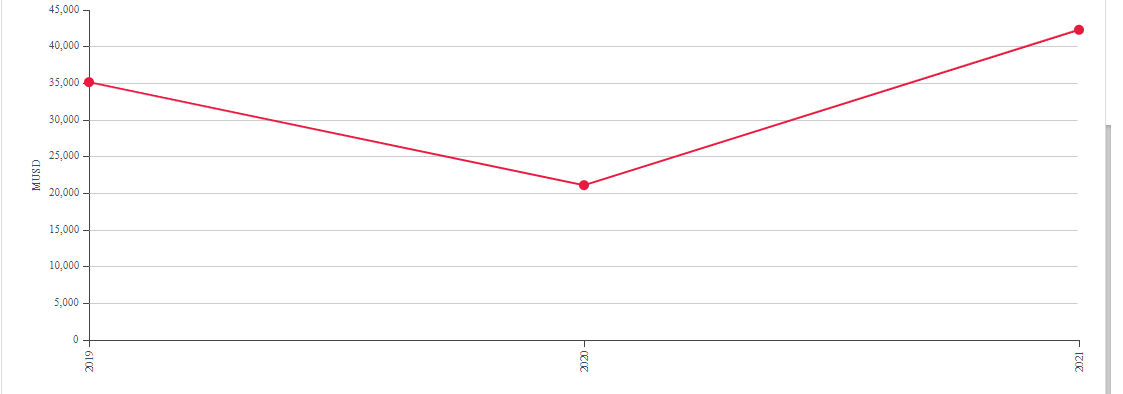
The economic growth and sustainability of the company have been increasing as a result of having measures that control the operations of the company. The company can further improve its profitability by adopting the lease operating expenses metrics in controlling the crude oil and gas operations. The metrics indicate the costs incurred by the company to sustain the oil state during and after the drilling process. LOE will also help the company by providing insights into the current and future financial health through effective budgeting processes.
Another performance measurement that can be used in controlling the company’s operations includes advancement in the shipment and delivery system by adopting technology. The ultimate goal for doing business is to satisfy customers by making them deliveries on time. The company has been relying on the supply of oil products by using large tracks and tankers, which sometimes cause delays. However, with the current technology in the transport sector, the company can use electric trains to supply oil within France and Europe. Piing can also be done to transport oil to other countries globally, and this is one of the safest and fastest means to transport oil and gas products.
Furthermore, the company’s operation has to ensure that the safety of employees is taken into account. Total Energies Company Limited must develop strategies that ensure that all workers are kept safe in the company’s diverse operations. The oil production process is risky, creating a need for the company to establish safety programs. This may include establishing a hospital specifically designed to examine the employees’ health to ensure that they are safe.
The company should also concentrate on the performance of its engineers. The engineers need to be equipped with effective mining and drilling equipment to enhance crude oil extraction. The company also needs to determine the cost-effective and most efficient drilling equipment that could help the company maintain its profitability track. Total Energies company limited should also invest in its drilling engineers by ensuring a good work environment that constitutes efficient operations. The adoption of effective KPIS will help the company in attaining its objectives in the petroleum production as presented in figure 4 below.
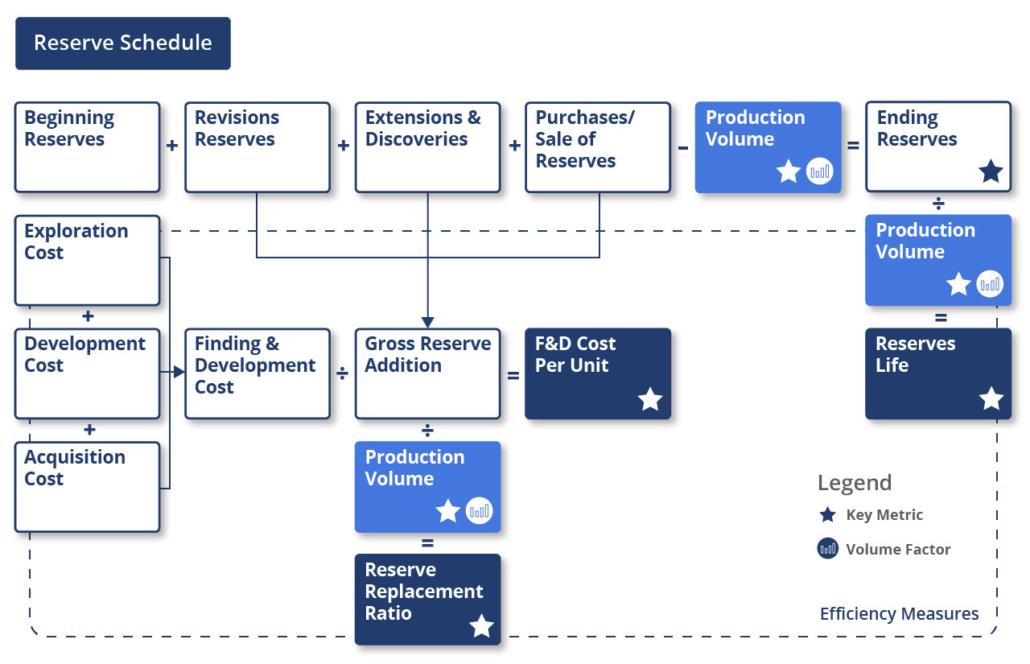
The Role of Management Information Systems in Assisting Strategic Goals and Operational Process Success
Management information systems(MIS) constitute the recent trend in the operations of petroleum and energy companies. MIS involves the aspect of integrating technology in the organisation to boost the aspects of human resources, data management, information analysis, and managerial decision-making process. Total Energies company limited has been effectively embracing the application of the MIS in its production and operation process, leading to growth (Fu et al., 2022). The application of different MIS at Total Energy Company Limited also focuses on the growth achievement of business and operational strategies. The MIS of Total Energies company limited comprises f the use of artificial intelligence and energy management system software.
Artificial intelligence (AI) has been applied by Total Energies to ensure that the business goals of the company are achieved by optimising the oil and gas being produced. The company incorporated google and the cloud when implementing AI in its operations. The company started to apply AI to characterise oil and gas fields with the help of machine learning algorithms in the 1990s (Zhang et al., 2021). At this time, the company could be in a position to minimise the use of manpower to machines hence increasing the productivity rate. In 2013 the company used machine learning algorithms to implement predictive maintenance of turbines, pumps, and compressors at its industrial facilities. This increased revenue as the company could produce products at a faster rate and make more sales. The company has automated most of its operations by substituting manpower with technology. Automation has made the production process and distribution of products easy, hence achieving its long-term business goals.
The company incorporated google in providing cloud computing services concerning artificial intelligence. The use of AI in cloud computing helps the company in the attainment of its operational goals. The actual requirements, appropriate methods, and technologies, including the use of Artificial Intelligence, will help in the optimisation of the operational processes of the organisation to automate its data storage procedures. Total Energies is a multinational company hence having a wide range of data that needs to be protected to increase efficiency in its operations. Some of the data stored on the cloud include financial data, Supplier data, customers’ data, employees’ data, and each departmental production information. The energy management system software is also adopted by Total Energies to help in the company’s supply chain and other operations (Zhang et al., 2021). The software is designed for consolidating, analysing, monitoring, and reporting energy-related information. The company has been able to manage its core operations and meet daily, weekly, and monthly targets. Some of the diverse importance of MIS in an organization can be is shown in figure 5 below.
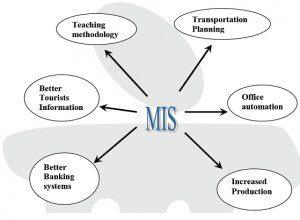
Critical evaluation of the role of ICT Applications in Supporting and Enhancing Operations Management
Technology and ICT play a vital role in the growth of enhancing and supporting operations management in organisations. Total Energies has embraced ICT in its different departments to enhance growth and smooth operations. The company has been able to comply with recent trends by adopting information systems and technology. Some of the ICT applications that the company has conducted comprise refinery information systems, communication systems, blockchain supply systems, and big data.
Refinery Information Systems
Total Energies has incorporated the refinery information system with ERP to boost its oil production processes. The company had multiple benefits as a result of using this technology. There is effective management of oil whereby the operation team can account for it from the production, refining and supply to the market. The technology also contributes to the real-time optimisation of resources during the production process. Some of the resources which are optimised include human resources, raw materials and financial resources. Other benefits the company attains from using a refinery information system comprise energy balancing, production accounting, tracking and monitoring of the KPIs, and effective application of the pricing strategies. Refinery information system can enhance smooth operations management at Total Energies as illustrated in the figure 6.
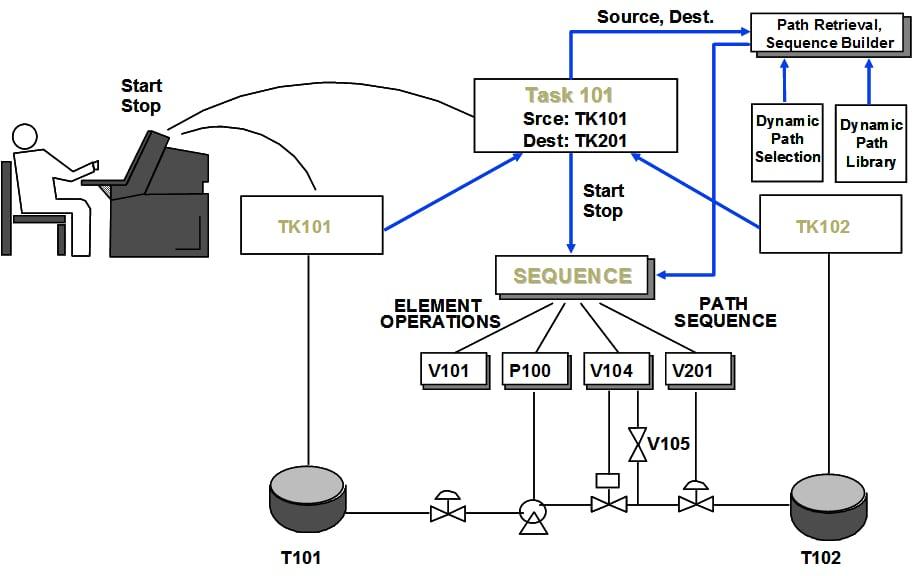
Communication Systems
Communication is essential for the operation of the company as it helps in the movement of information from one department to another. Total Energies company limited has many subsidiary companies which need a good communication system to help in enhancing efficient operations. Adequate communication is required between different units of the company to facilitate the smooth running of operations. The ICT application used by Total Energies, including dashboards, chats, and forums, has ensured crucial information with respect to oil and gas production is conveyed in the minimal time possible. The demand energy market is experiencing rapid growth, and this needs the oil and petroleum companies to embrace the use of recent communication technologies with respect to ICT. Constant integration of new communication technologies has empowered the decision-making process of the company as well as increased the daily output from different production units. The diverse role of communication system is as presented in figure 7 below.
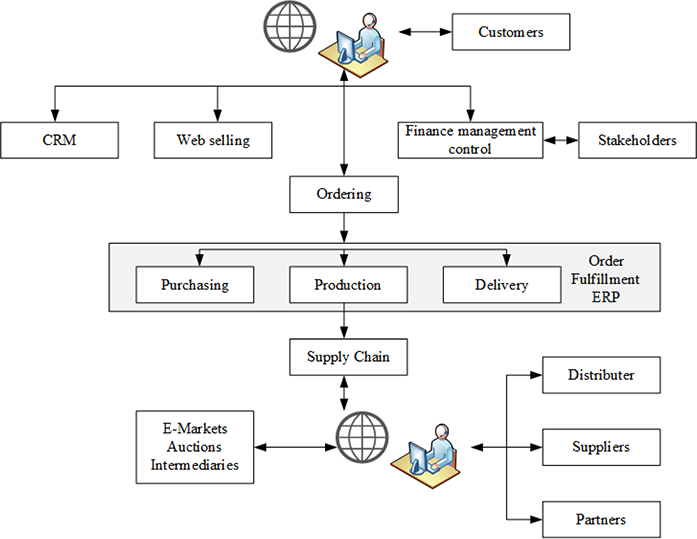
Blockchain Supply System
Total Energies has boosted its operations and management system by adopting blockchain supply technologies. The system has provided a consolidated platform for monitoring, tracking, executing and validating transactions within the organisation, starting from the production, refining and delivering the final product to consumers (Ahmad et al., 2022). The system has positively impacted the operation management of the company by reducing the amount of time taken when executing transactions between different subsidiaries. The operational costs have also been reduced due to using blockchain, as this has helped reduce the production costs incurred by the company. The asset management of the company has been positively facilitated by the effective application and use of blockchain technologies. This has been enhanced through effective tracking and monitoring the volumes and finances within the company and the rest of the subsidiary companies. With the block chain technology, operation of the company can be presented as shown in figure 8 below.
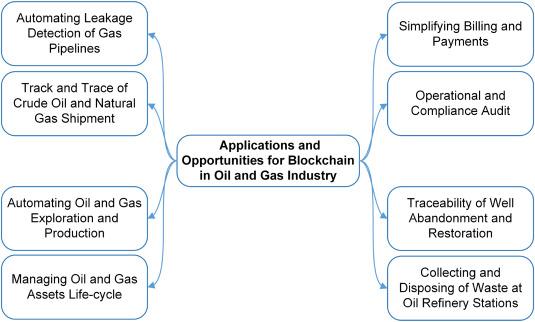
Big Data Technologies
The Total Energies company limited has also been using big data technologies in its operations with the primary objective of planning. Through big data, the company can be able to forecast demands through predictive analytics (Choi et al., 2021). Big data analytics also helps in the daily operation of the company by providing insights which are used when monitoring transactions. The operations and logistics of the inventory also rely on big data technologies for scheduling, recording, tracking and reconciling. Big data is associated with increasing production volume, velocity, variety of product, veracity, value addition and complexity as presented in figure 9.
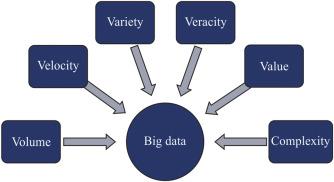
Project Plan-Methodologies and Scheduling Tools
Project implementation in an organisation depends on effective scheduling tools for operation management. The tools which can be used by Total Energies to implement a new project are comprised of a Work Breakdown Structure, a Gantt chart, and a Logic network which presents a logical workflow. The tools need to be aligned with the company’s objectives and operation strategies to facilitate saving on the costs which the company can incur.
Gantt Chart
The Gantt charts are mainly used in an organisation to help plan, schedule and implement projects. Total energies can actualise the use of this tool to assess how long the project can take as well as identify the needed resources for the completion of the project (Lee et al., 2022). Figure 10 below shows how the Gantt chart can be implemented at the total Energies. All the activities involved in the execution of the new technology project are identified and allocated within the specific time.
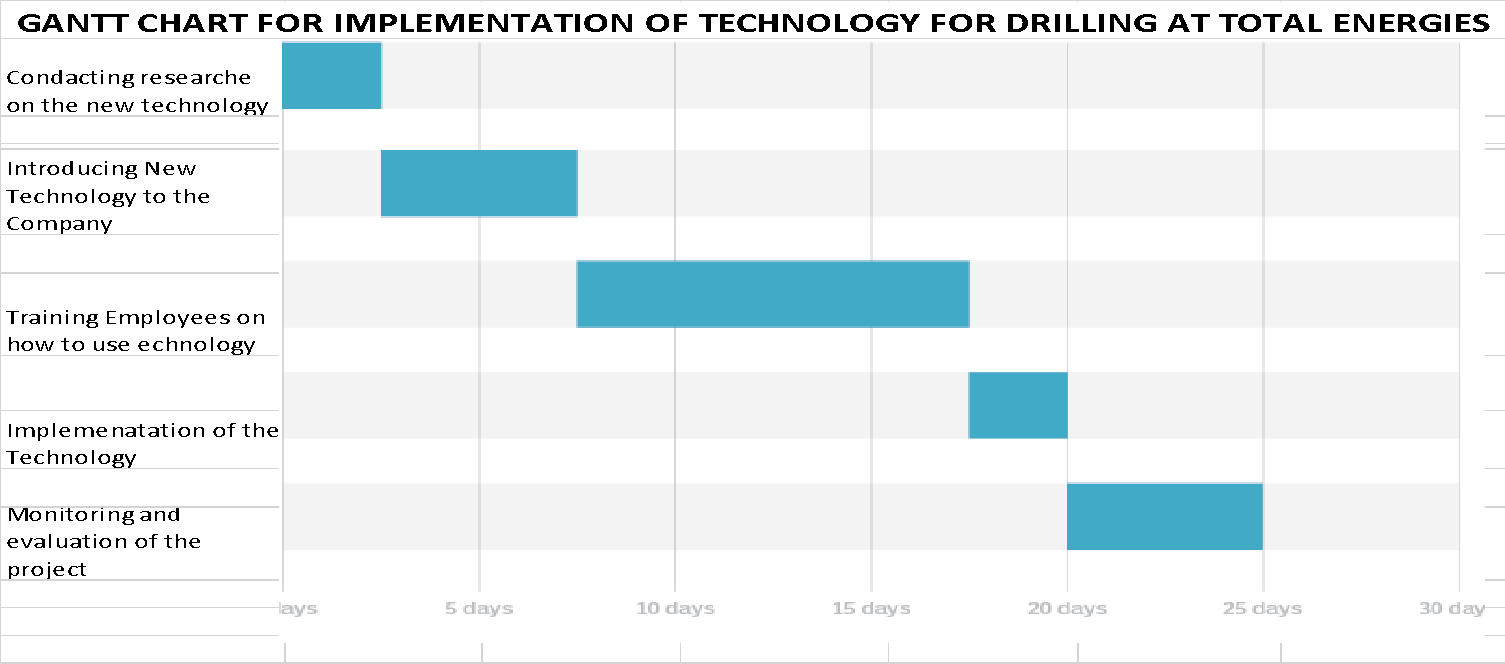
Work Breakdown Structure
In project management, a work breakdown structure is essential in identifying the work plan, which can help in the implementation of the new project. The WBS, in figure 11, will help Total Energies define the organisation’s work required, allocate resources to specific projects, and identify the scope and potential risks that could affect the given project (Lee et al., 2022). Total energies can also adopt WBS when undertaking a complex project, as this will provide different milestones used in completing the project at a given time. Different milestones used in the WBS could also help the project team manage resources and plan how to execute different activities.
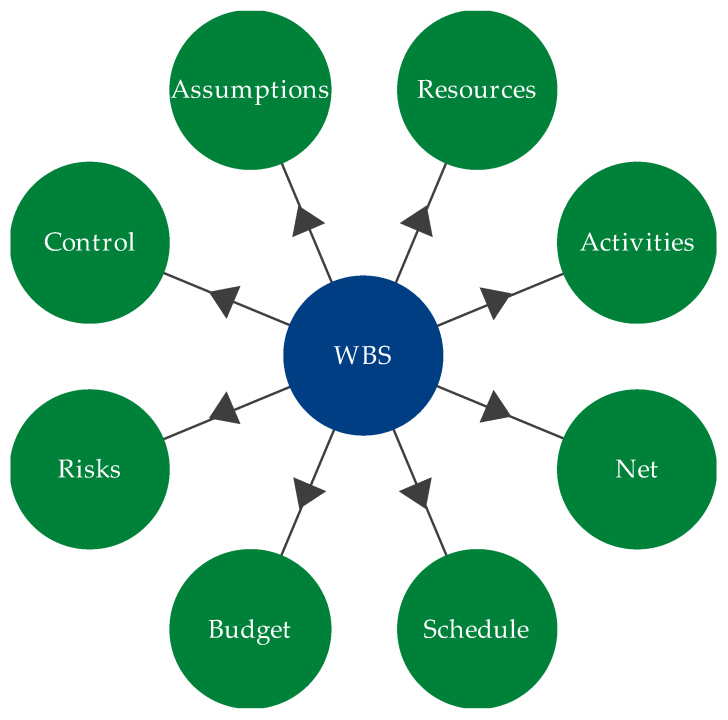
Project Evaluation
The concept of project evaluation in an organisation is essential as it helps in the identification of the possible outcomes of a given project. Total energies can adopt financial models in evaluating the project results to determine whether the new project is contributing to the company’s growth. For instance, Computations of the Present Net Value (NPV) can be done to gauge the cash flows generated from a given project. This could help to determine whether the project is generating returns or not. Some of the layout of project evaluation is as presented in figure 12.
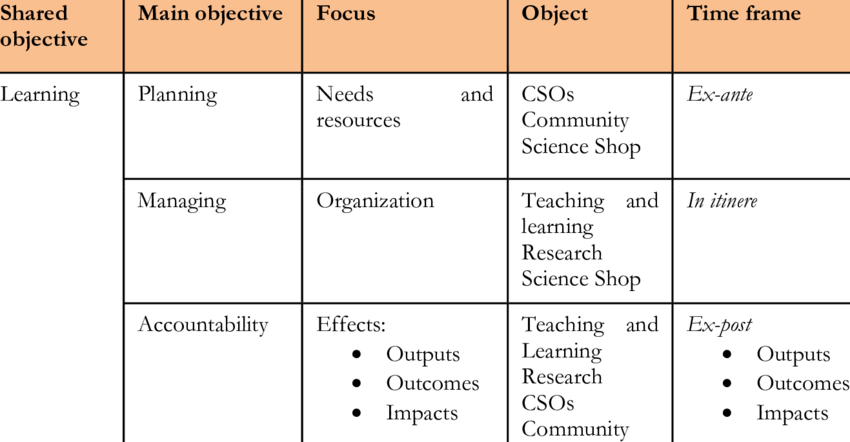
Contribution of Leadership in Project during Change and Managing Stakeholders
Effective leadership in a given organisation helps in the management of new change. The implementation of new drilling technologies at Total Energies initiates a change which needs to have a leader. A leader should display appropriate leadership skills that could influence stakeholders of Total Energies to invest and participate in the project implementation process. Leaders are also responsible for guiding other operational stakeholders during any transition changes relating to a project. When executing the project, leaders are also providing solutions and advice on dealing with certain challenges that could be associated with the company’s new technology.
Final Findings Analysis and Conclusion
The operations management report’s findings for Total Energies show that technology plays a vital role in enriching the goals and objectives of the company. Total Energies being an oil manufacturing company greatly relies on project management for the achievement of its set objectives and goals. Effectiveness in planning, production process, supply chain and delivery of oil products to customers has led to the competitiveness of the company in the global market. The findings and recommendations from the report can be made as follows.
Total Energies has been utilizing competitive strategies in its operations hence being able to gain competitive advantage. It produces unique products based on the scientific workflow hence being able to fit in the global market. Productivity, workflow, and quality have a positive set of impact on the competitors in the market. In recommendation, the company should make effective application of the Michael Porter strategies and full adoption of technologies in increasing its competitive in the global trade.
The alignment of supply chain and operational strategies with business strategies has made Total one of the best companies in the world. The company’s top-notch logistical services have helped France become known worldwide as one of the top energy suppliers, boosting the country’s economy. Blockchain technology has significantly aided the company’s expansion and market penetration on a global scale. It is recommended that the company incorporate technology into its supply chain strategies. This will help in improving its business transactions.
The KPIs at Total Energies comprise economic growth and sustainability, advancement in the shipment and delivery system by adopting technology, the safety of employees, and empowering the performance of the engineers. Effective applications of KPIs have helped the company in improving its productivity. In the future, the company should focus on stabilizing its operations and supply chain management by employing relevant technologies.
Total Energies has embraced technology by implementing the refinery information system, communication systems, blockchain supply systems, and big data technologies. The deployment of new technologies in the company’s supply chain is responsible for the growth and success of the company’s operations in the energy and petroleum industries. However, the total energies can consider incorporating other technological tools such as ERP, artificial intelligence, and cloud computing for effective data storage.
Some of the techniques adopted by the company when implementing the new project comprise the Gantt chart, work breakdown structure, and logic network. The tools have been helping the company meet both long-term and short-term goals for its operations. It is recommended that the company adopt modern project management tools linked with logistics for the effectiveness and efficiency of its operations. Such tools may consist of a PERT diagram and critical part methods.
Reference list
Ahmad, R.W., Salah, K., Jayaraman, R., Yaqoob, I. and Omar, M. (2022). Blockchain in oil and gas industry: Applications, challenges, and future trends. Technology in Society, 68, p.101941.
Alsuwailem, M. and Williams-Rioux, B. (2022a). Integrated Oil Companies and the Quest for Energy Transition. Day 1 Mon, 2022.
Alsuwailem, M. and Williams-Rioux, B. (2022b). Integrated Oil Companies and the Quest for Energy Transition. Day 1 Mon, 2022.
Batista, L., Bourlakis, M., Liu, Y., Smart, P. and Sohal, A. (2018). Supply chain operations for a circular economy. Production Planning & Control, 29(6), pp.419–424.
Benjaafar, S. and Hu, M. (2019). Operations Management in the Age of the Sharing Economy: What Is Old and What Is New? Manufacturing & Service Operations Management.
Choi, T., Kumar, S., Yue, X. and Chan, H. (2021). Disruptive Technologies and Operations Management in the Industry 4.0 Era and Beyond. Production and Operations Management, 31(1).
Choi, T.-M., Wallace, S.W. and Wang, Y. (2018). Big Data Analytics in Operations Management. Production and Operations Management, [online] 27(10), pp.1868–1883.
Fu, Q., Abdul Rahman, A.A., Jiang, H., Abbas, J. and Comite, U. (2022). Sustainable Supply Chain and Business Performance: The Impact of Strategy, Network Design, Information Systems, and Organizational Structure. Sustainability, 14(3), p.1080.
Ishfaq, R., Davis‐Sramek, E. and Gibson, B. (2021). Digital supply chains in omnichannel retail: A conceptual framework. Journal of Business Logistics.
Ivanov, D., Tang, C.S., Dolgui, A., Battini, D. and Das, A. (2020). Researchers’ perspectives on Industry 4.0: multi-disciplinary analysis and opportunities for operations management. International Journal of Production Research, 59(7), pp.1–24.
JPT staff, _ (2021). E&P Notes (November 2021). Journal of Petroleum Technology, 73(11), pp.14–16.
Kazancoglu, Y., Kazancoglu, I. and Sagnak, M. (2018). A new holistic conceptual framework for green supply chain management performance assessment based on circular economy. Journal of Cleaner Production, 195, pp.1282–1299.
Lee, J.H., Park, S.M., Kim, S.K. and Kang, L.S. (2022). Linear 4D system using schedule-location charts for infrastructure projects. Automation in Construction, 141, p.104413.
Reid, R.D. and Sanders, N.R. (2019). Operations Management: An Integrated Approach. [online] Google Books. John Wiley & Sons. Web.
Stoyanova, T. and Angelova, M. (2018). Impact of the Internal Factors on the Competitiveness of Business Organizations. [online] IEEE Xplore.
Vermeille, S. and Oudin, P. (2022). The Admissibility of Shareholder Proposals under French Law and Its Control by the Market Authority: A Functional Approach. [online] papers.ssrn.com. Web.
Zhang, Z., Ning, H., Shi, F., Farha, F., Xu, Y., Xu, J., Zhang, F. and Choo, K.-K.R. (2021). Artificial intelligence in cyber security: research advances, challenges, and opportunities. Artificial Intelligence Review.